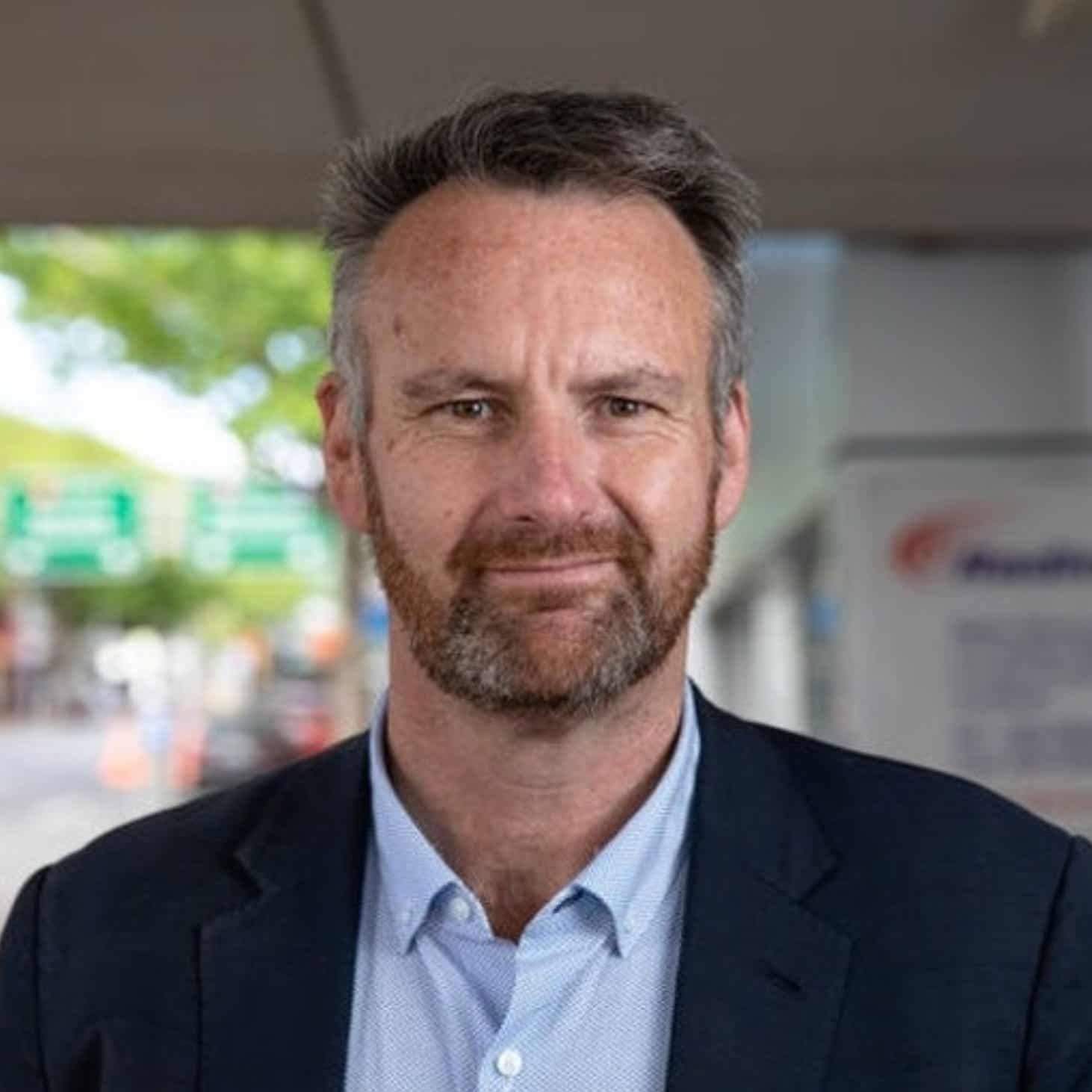

The Kākā by Bernard Hickey (private feed for simon.wheatley@acgedu.com)
https://api.substack.com/feed/podcast/102473/private/76eceb36-122f-486d-a5ae-521891ab2480.rssEpisode List
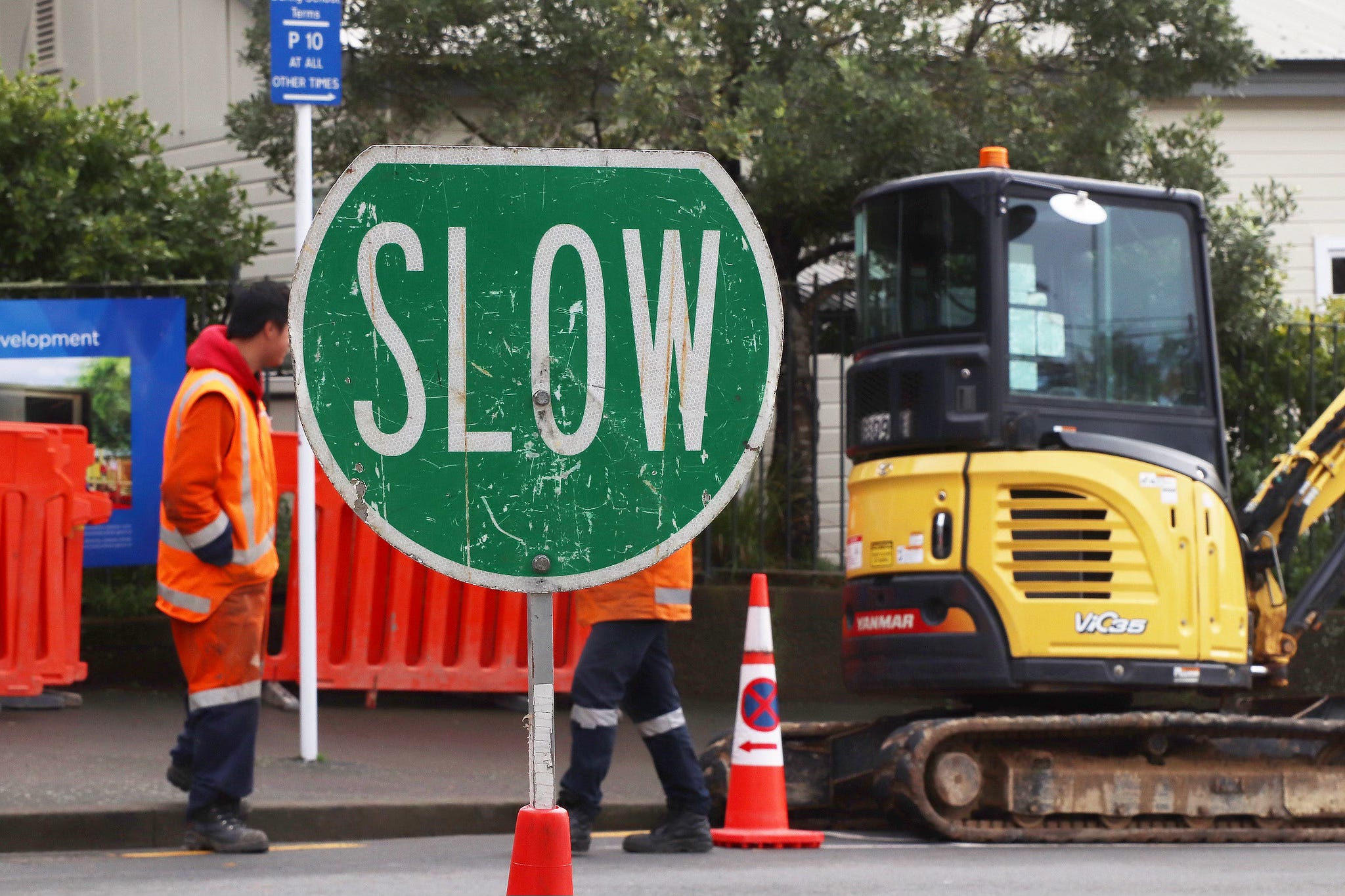
Friday's Chorus: A miserly, investment-lite Government
Briefly in the news in Aotearoa’s political economy around housing, poverty and climate on Friday, November 7:* Despite pledges the Government is ramping up capital spending to reduce infrastructure deficits and spark economic growth, Treasury yesterday published accounts for the first three months of the financial year showing the Government’s capital investment spending rose 1.6% to $918 million in the first quarter from a year ago, growth which is less than half the CPI inflation rate. * The capital investments in the September quarter were at least $267 million less than forecast in the May Budget and were less than half the depreciation recorded in the accounts for the quarter of $2.101 billion.* The accounts also showed Government spending on wages fell 1.6% to $9.95 billion in the quarter from a year ago. Public sector wages grew 2.4% in the quarter from a year ago and household living costs grew 2.4%, which amplified the effect on wider consumer spending of public sector job cuts. * The cost of building and servicing the PPP debt on Wellington’s Transmission Gully motorway has blown out to $3.75 billion over the next 25 years, including $1.25 billion to build it and $2.5 billion to service the debt over 25 years, and that’s before an extra $32 million per year from this year to maintain the road. It would mean the motorway cost $139 million per km to build and a non-inflation-adjusted $132 million per year $5 million per km per year or to run. The Post-$* Troy Bowker, a Wellington businessman who has accused most New Zealand media outlets of left-wing bias and helped lead a nearly-successful takeover of NZME by activists wanting less left wing content in the NZ Herald, has bought the building in Petone containing Stuff’s printing plant for The Post and many other newspapers in the bottom half of the North Island. * The lease is up for renewal next year with a potential one-year extension to 2027, raising the possibility Bowker either buys and publishes The Post, which is again reportedly up for sale, or shuts it down by refusing to extend the lease, given the high costs of removing and re-housing the printing plant. NZ Herald-$* Today’s top must read, in my view is Amy Williams’ deep-dive on homelessness in Auckland for RNZ this morning. Homeless becoming more desperate, court worker saysJoin us as a paying subscriber to get more analysis and detail in the podcast above, and be able to comment below and join The Kākā community in webinars and our chat room. Paying subscribers also allow me to do this journalism. I am opening this one immediately to all, mainly so the young & homeless who can’t afford it can read it. Thanks to subscribers in advance.A miserly & investment-lite GovernmentThe Government continues to argue it is investing heavily in infrastructure to grow the economy and is not using short-term financial management, but the Crown Accounts for the first three months of the current financial year show a different story.The bottom line most focused on from yesterday’s figures was the budget deficit being $496 million worse than expected at $3.955 billion, thanks to weaker tax revenues from a stuttering economy, shell-shocked consumer spending and job losses. But the cash bottom line deficit of $1.362 billion was $1.639 billion better-than expected. That meant the Government’s net core Crown Debt of $184.673 billion was up $2.5 billion, but was around $5.2 billion less than expected, after revaluations.That appears not to compute, until you look more closely at the capital spending line, which was $918 million for the quarter, which was $287 million less than forecast. Total capital committments for future years were $15.53 billion, down from $16.865 billion a year earlier. A wider number for capital committments for the year also fell, as Treasury pointed out:“The lower than forecast net core Crown capital outflows was owing to lower than forecast net purchase of investments ($1.6 billion). This largely reflects capital funding from the core Crown into Crown entities and SOEs which are mainly used for the purchase of property, plant and equipment.” Treasury commentary on page 3 of the Crown Accounts for the September quarter.A simpler measure, as detailed below, showed capital spending of $918 million, less than half the depreciation noted in the accounts.The Government has argued it can’t afford to keep growing spending or ramp up capital spending dramatically because Government debt and interest costs were too high.However, the accounts show net interest costs of just $628 million after the receipts from interest and dividends, which is barely 1.5% of total revenues. Would you worry about your debt to the extent to restrict spending on life-saving equipment and staffing because your mortgage costs had risen to 1.5% of your disposable income? Chart of the Day: A generational issueMy short Pick n’ Mix of links elsewhereA few subscribers asked for me to continue the Picks n’ Mixes, even in limited form. Politics and the Economy* Deep-dive by Amy Williams for RNZ: Homeless becoming more desperate, court worker says* RNZ: Govt pays $6.3m for Michelin restaurant reviewers to tour NZ* Deep-dive by David Williams for Newsroom: Who Benefits: The rise and rise of the Free Speech Union ‘A free speech advocacy group looks ahead but struggles to shake off the label of a dark money think tank’* Laura Walters for Newsroom: Officials warn school board changes breach Treaty ‘In a political flip-flop, Education Minister Erica Stanford has decided to remove the Treaty of Waitangi obligations on school boards without consulting Māori’* Susan Edmunds for RNZ: $50 an hour, 12% superannuation: Australian recruiters target jobseekers* Gareth Vaughan for Interest: BNZ says lower interest rates enabling customers to pay down loans fasterHousing, Climate & Poverty* Tova O’Brien for Stuff: Wellington depression recovery centre to close after no funding reprieve. ‘Accidental meeting invite from Health NZ gave false hope but no reprieve for Wellington mental health service’* Deep-dive by Maddy Croad for The Press-$: ‘Abandoned and betrayed’: Disabled community still hurting a year after funding cuts. ‘Ruth Jones says many Kiwis are still struggling to recover mentally, financially and physically - unable to get funding for basics like carers or incontinence pads.’* Investigation by Jonathan Milne for Newsroom: Govt answers fishing chief’s billion dollar question on climate disclosures ‘There are a handful of corporates that stand to benefit from Commerce Minister Scott Simpson’s unexpected call to dramatically loosen climate reporting requirements; some are political donors’* Column by Marc Daalder for Newsroom Pro-$: Govt’s climate strategy: Let it burn ‘Since the election, the Government has pursued policies that boost climate pollution – even if they cost more or jeopardise NZ’s reputation. We lay out the long list of retreats on climate action.’* Column by Barbara Fountain for Newsroom: Stop telling health professionals to get back in their box ‘By trying to silence health professionals, the Govt risks smothering advocacy, equity and reform’* Deep-dive by Nikki Mandow for Newsroom: When everyone lived in an affordable homeCartoons: Cliff diving economicsTimeline-cleansing nature picKa kite anoBernard This is a public episode. If you'd like to discuss this with other subscribers or get access to bonus episodes, visit thekaka.substack.com/subscribe
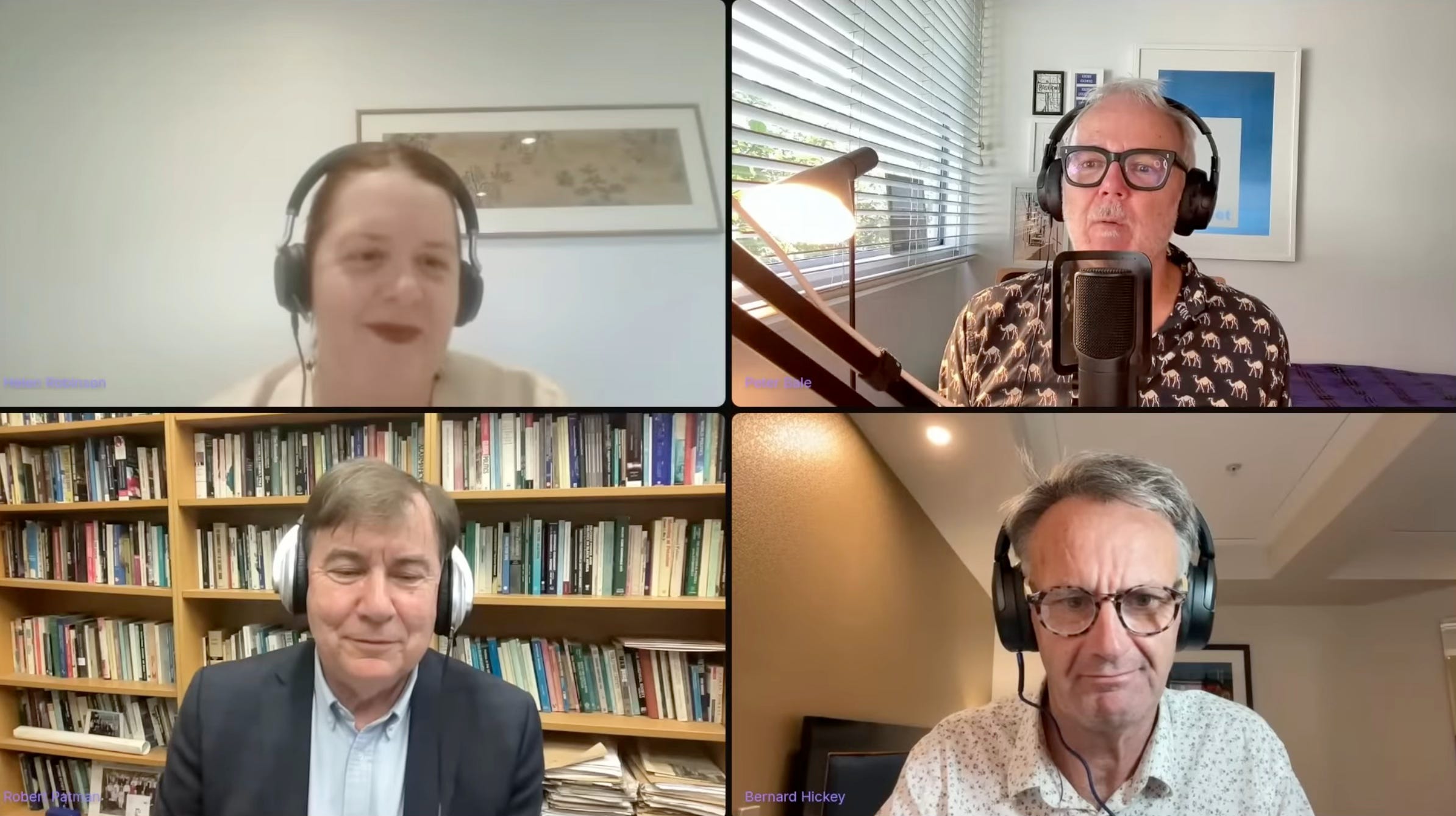
The Weekly Hoon: A climate policy bonfire; The meaning of Mamdani; Sudan's tragedy & the criminalisation of homelessness
The podcast above of the weekly ‘Hoon’ webinar for paying subscribers on Thursday night featured co-hosts Bernard Hickey and Peter Bale talking with regular guests Robert Patman and Cathrine Dyer, and a special guest about the economy, politics, geopolitics, climate change, New York’s new mayor Zohran Mamdani, the gutting of Aotearoa’s Zero Carbon Act this week and revelations the Government is ‘move-on order’ legislation to allow Police to move homeless people out of CBDs for a day.This week’s special guest was Auckland City Missioner Helen Robinson.Our topics this week were:* Bernard, Peter & Robert talked about the election of New York Mayor Zohran Mamdani and what it means politically inside, and potentially outside, the United States. * Bernard and Peter talked about this week’s climate change policy changes with Cathrine.* Peter and Robert talked about the latest crisis in Sudan.* Bernard, Peter and Helen talked about this week’s ‘move-on order’ news around homelessness in our CBDs.The Hoon’s podcast version above was recorded on Thursday night during a live webinar for over 200 paying subscribers and was produced and edited by Simon Josey. The Hoon won the silver award for best current affairs podcast in this year’s New Zealand Podcast awards. (This is a sampler for all free subscribers and anyone else who stumbles on it. Thanks to the support of paying subscribers here, we’re able to spread my public interest journalism here about housing affordability, climate change and poverty reduction other public venues. Join the community supporting and contributing to this work with your ideas, feedback and comments, and by subscribing in full. Remember, all students and teachers who sign up for the free version with their .ac.nz and .school.nz email accounts are automatically upgraded to the paid version for free. Also, here’s a couple of special offers: $3/month or $30/year for under 30s & $6.50/month or $65/year for over 65s who rent.)Ngā mihi nui.Bernard This is a public episode. If you'd like to discuss this with other subscribers or get access to bonus episodes, visit thekaka.substack.com/subscribe
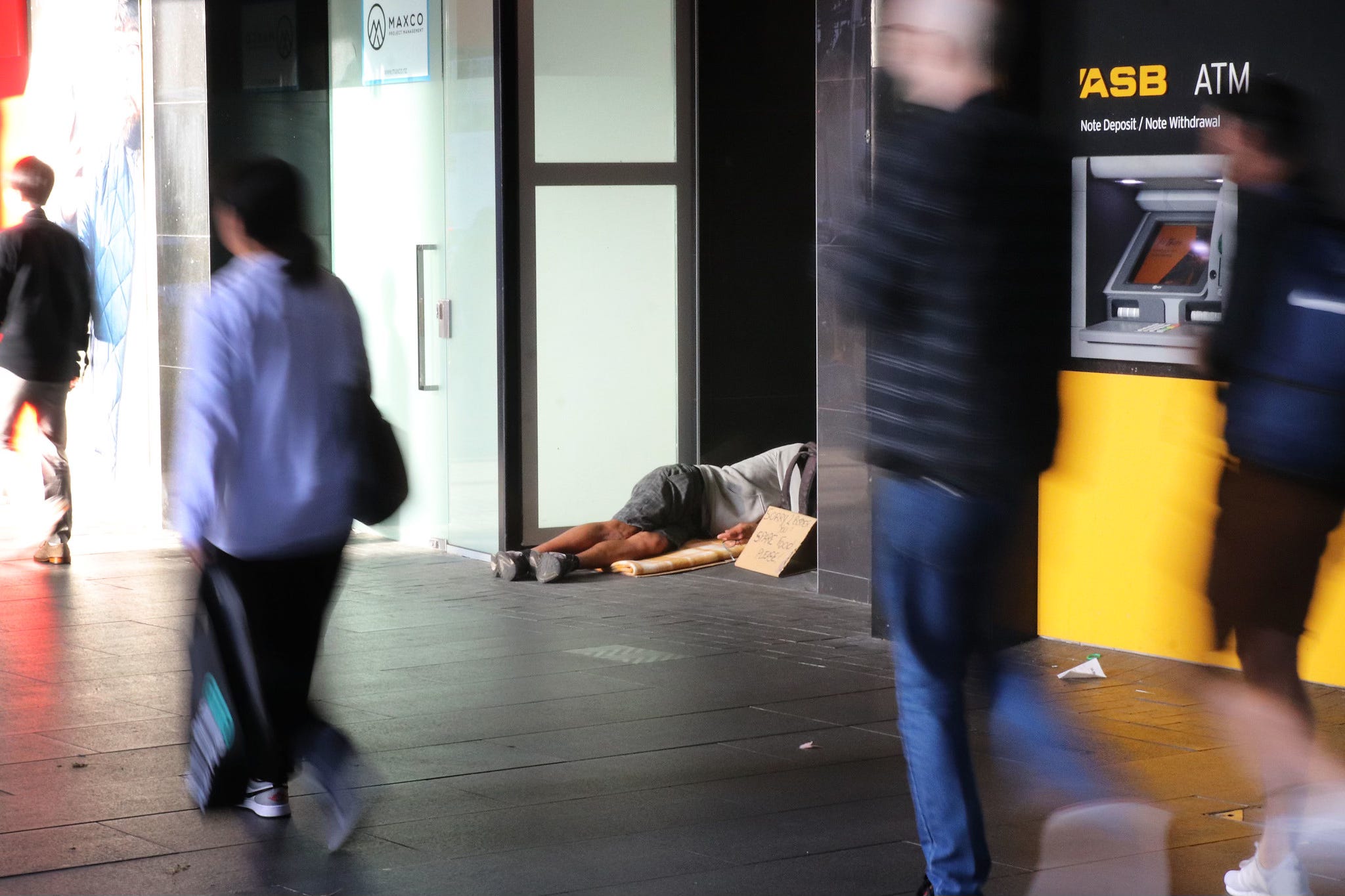
Thursday's Chorus: 'Where are we moving these people to?'
Briefly in the news in Aotearoa’s political economy around housing, poverty and climate on Thursday, November 6:* Charities are scrambling in response to signs the Government is planning a ‘move on’ law to push hundreds of homeless out of city centres, despite only adding two (repeat TWO) new Housing First places out of a planned 300. (RNZ)* PM Christopher Luxon told Parliament Aucklanders wanted the CBD ‘sorted’ before opening the new International Convention Centre and City Rail Link stations, adding: “Visitors are coming into Auckland. We need to make sure it’s a good presentation.” (RNZ)* Auckland City Missioner Helen Robinson said an enforcement approach was not effective, saying: “All it simply does is either delay or literally move the person, and therefore all the needs associated with that person down the road - both literally and metaphorically. The answer here is more homes and more support.” (RNZ)* A former Climate Commissioner and climate change academics described Climate Change Minister Simon Watts’ late-night changes to the Emissions Trading Scheme (ETS) and proposed changes to the Zero Carbon Act showed it wasn’t serious about reducing emissions and was gutting the act and the bipartisan consensus that created it piece by piece. (Science Media Centre)* The carbon price in ETS markets immediately fell 20% to NZ$41.50/tonne yesterday morning, before recovering somewhat to close down around 10% at NZ$47, which compares with NZ$166/tonne in European markets last night. * The changes disconnect the ETS from the Paris Agreement and end the need for the Government to receive advice from the Climate Commission.Join us as a paying subscriber to get more analysis and detail in the podcast above, and be able to comment below and join The Kākā community in webinars and our chat room. Paying subscribers also allow me to do this journalism. I am opening this one immediately to all, mainly so the young & homeless who can’t afford it can read it. Thanks to subscribers in advance.Government may outlaw homeless from CBDsCharities helping the hundreds of people sleeping out in the open in city centres scrambled yesterday to publicise signs from within Government it is planning to legislate to allow councils to ‘move on’ homeless people from city centres to make them more attractive to tourists, conference-goers and shoppers.Representatives from Auckland City Mission, Visionwest, Lifewise, Kāhui Tū Kaha, Te Matapihi, Community Housing Aotearoa and Housing First Auckland told RNZ yesterday morning they believed the government was taking an urgent, “move on” approach to homelessness. This followed a meeting with Minister for Auckland Simeon Brown and after National MP Ryan Hamilton put a members’ bill in the ballot titled Policing (Direction to Move On) Amendment Bill. It would give Police the power to ‘move on’ people in a specified area they deemed a ‘public nuisance’ for 24 hours. It is backed by Police Minister Mark Mitchell.Auckland City Missioner Helen Robinson said any enforcement approach would be “totally and utterly ineffective”.“People who are rough sleeping are human beings, and any kind of enforcement approach is not only not good, but it’s also ineffective.“All it simply does is either delay or literally move the person, and therefore all the needs associated with that person down the road - both literally and metaphorically. The answer here is more homes and more support.” Auckland City Missioner Helen Robinson via RNZIn September the government funded an additional 300 social homes through Housing First, but only two houses have been delivered.‘We need to clean it up to make it look good for the visitors’Asked during Parliamentary question time yesterday about the plans by Labour Housing Spokesman Kieran McAnulty, Housing Minister Chris Bishop initially denied legislative change was planned, but said the Government was doing work.“The Government is considering a range of different things in relation to the CBD. It is 8 percent of the country’s economy; it is of national significance; and, with the City Rail Link opening next year, the International Convention Centre opening, and an increased push for tourism—for example, from cruise ships—the Government, as well as Auckland Council, is of the view that we can make the CBD a more desirable place for everyone to be than it currently is.” Chris Bishop (Question #9 Hansard) Luxon did acknowledge the work being done on the “move on” proposals.“Aucklanders want the CBD sorted. Visitors coming into Auckland, you know, we need to make sure it’s a good presentation. And yes, move on orders would be one of the things that you’d want to be considering.“But obviously, when you consider them, you’ve got to make sure that you’ve got the right support structures in place to support people as well. So I’m sure that’ll be part of the conversation.” Luxon via RNZBishop said he was not aware of the “move on” bill, while Mitchell said a decision on whether the Government pulled the private member’s bill from the ballot to become a Government bill was up to Justice Minister Paul Goldsmith and the Cabinet.‘Hysteria is not helping’Green Party Co Leader and Auckland Central MP Chloe Swarbrick said she had written to Mitchell asking him to visit the Auckland CBD to examine the homelessness issue.“They have intentionally chosen to make more people homeless. We are left with a situation where many of my constituents in the city centre, and particularly a number of city centre businesses, have noticed that fact.“Where are we moving these people to? My experience, as the local MP in Auckland Central over the last five years, where police have been brought in to move people along is that it doesn’t actually resolve the problem.“It merely moves the problem along to another place and pops up in another part of the city. I would just ask that everybody who has an interest and a stake in Auckland city centre calms down. Hysteria is not helping.” Swarbrick via RNZ‘Criminalising whānau for sleeping on the streets’Housing advocates in Auckland, including Kick Back co-founder Aaron Hendry, criticised the “move on” legisation as criminalising the act of sleeping rough, which had been worsened by Government measures.“If the Government goes ahead with this ban, what they will be doing is criminalizing whānau for sleeping on the streets as a result of the political decisions they themselves have made to deny people shelter.“Our whānau experiencing homelessness are not the problem, the problem is that we have human beings who are forced to sleep outside because they have been denied access to their most basic human right to housing.“Homelessness is a direct consequences of the political choices our political leaders have made over decades, political choices which have seen housing commodified, and the financial interests of investors and landlords elevated over our people’s most basic human need to access a safe and stable home.” Kick Back co-founder Aaron Hendry in a statement.Chart of the Day: Reinsurance costs quintuple in 15 yearsMy Pick n’ Mix of links elsewhereA few subscribers asked for me to continue the Picks n’ Mixes, even in limited form. Politics and the Economy* Deep-dive Cushla Norman for 1News: Ditching NZ for Oz: Kiwis at departure gate reveal why they’re leaving. ‘This year was meant to be the one when New Zealand closed the income gap with Australia and stemmed the exodus. Instead, more Kiwis than ever are leaving for a better life.’* Susan Edmonds for RNZ: People manipulating KiwiSaver hardship withdrawal system - providers* Phil Pennington for RNZ: FENZ aims to save millions: ‘We can’t keep doing everything for everybody’* RNZ: Nailing rogue salons: Fears over money laundering, trafficking* RNZ: Inquiry finds Carl Bates followed rules in declaring property interests* Liu Chen for RNZ: Minister accused of ‘driving a wedge’ between migrants and localsHousing, Climate & Poverty* Phil Pennington for RNZ: Company researching forestry road safety after trucker’s death* Layla Bayley-McDowall for RNZ: Diluting history curriculum risks ‘leaving our past to chance’ - Academic* Good news via Ruth Hill for RNZ: Nearly 60 midwives trained to deliver pregnancy vaccination programme* Pokere Paewai for RNZ: Crown breached Treaty principles with te reo policies - Waitangi Tribunal* Good news via Samantha Gee for RNZ: New dialysis unit to save patients hours of travel* Susan Edmunds for RNZ: Should we be paying $3 per km to fly domestic?Cartoons: Double happy? The bonfire on Guy Fawkes night.Timeline-cleansing nature picKa kite anoBernard This is a public episode. If you'd like to discuss this with other subscribers or get access to bonus episodes, visit thekaka.substack.com/subscribe
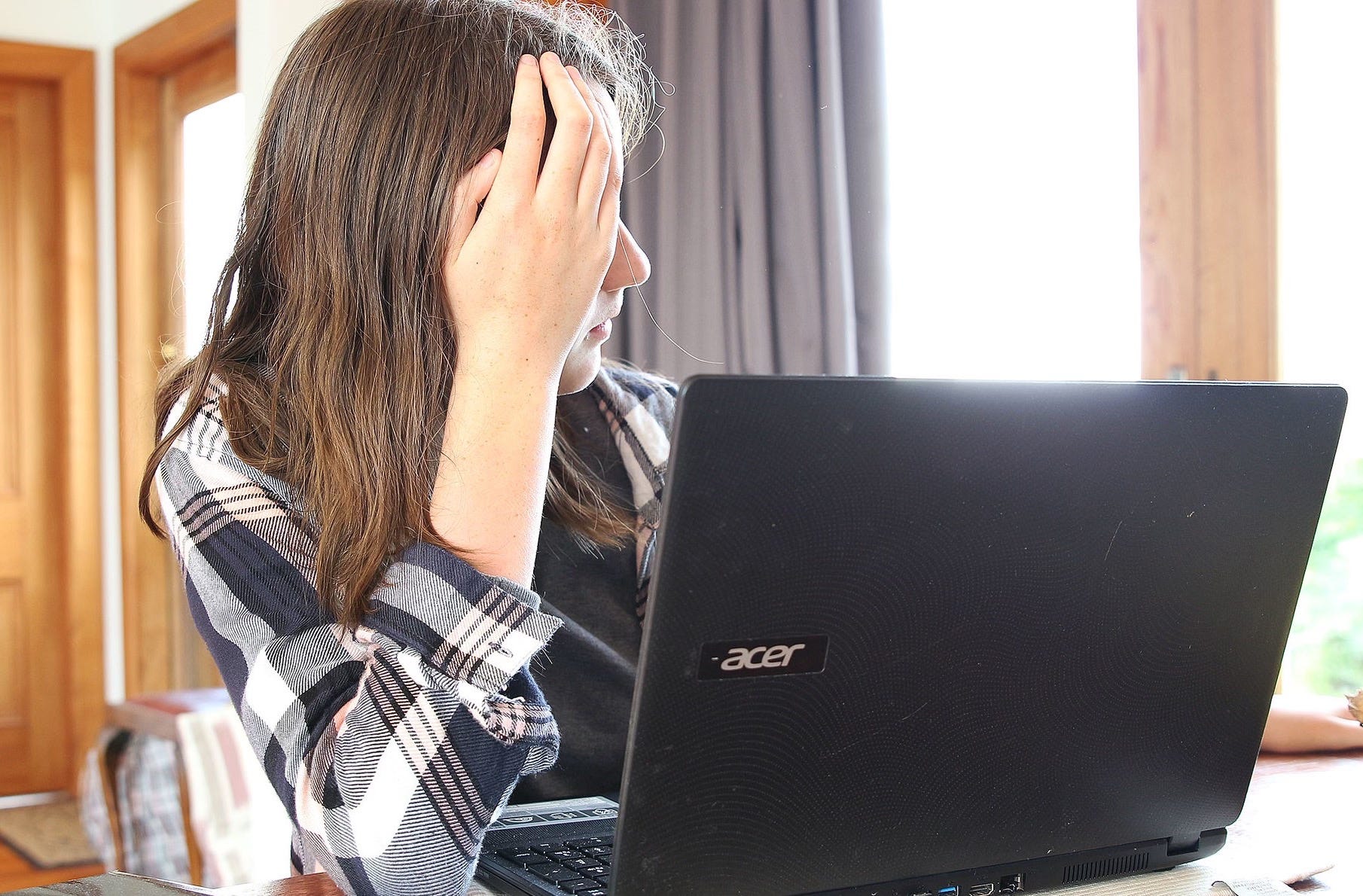
Wednesday's Chorus: Mental health & joblessness wrecking a generation of workers
Briefly in the news in Aotearoa’s political economy around housing, poverty and climate on Wednesday, November 4:* Labour force data due later today is expected to show a slight rise in the unemployment rate to a nine-year-high of 5.3%, with a 0.1% rise in jobs not enough to soak up extra people entering the labour force. * But the small rise disguises an emerging jobs and health catastrophe for young people who have entered the workforce in the last decade since the start of mass usage of smart phones, the Covid pandemic and heavy job losses since late 2023.* Stuff’s Bridie Witton reports from official data this morning that almost 90,000 people are now on a jobseeker or supported living benefits because of mental health issues, up by 35,000 over the last decade, including 9,000 during the 2020 and 2021 Covid lockdown periods, and a total of 23,000 since March 2020.* The damage to a generation’s health and work prospects for life has been compounded by a collapse in employment of young people since early-2023, including the loss of over 80,000 jobs in the 15 to 35 age groups.* In housing news, Kāinga Ora has sold 171 sections in South Auckland to a developer for a profit, David Fisher reports for The NZ Herald-$, while the Government is waiting for house prices to rise to sell 35 built-but-unoccupied townhouses it had to buy off a Kapiti developer because of an underwrite from 2023, Amy Ridout reports for Stuff.* Meanwhile, less than a year after the beginning of the Government’s Fast Track Approvals regime, RMA Reform, Infrastructure and Housing Minister Chris Bishop and Resources Minister Shane Jones have gone back to Parliament with rewrites of the law to accelerate the approvals process by another six months. * The changes give more powers to the two ministers to set national standards and over-rule the Environmental Protection Authority (EPA), along with removing the need to consult more widely and curtailing appeal rights.* The Environmental Defence Society said the changes, which will themselves be fast-tracked through Parliament, were a further assault on the environment and democracy.* BusinessDesk-$’s Pattrick Smellie and Dileepa Fonseka reported this morning EPA CEO Allan Freeth resigned abruptly yesterday after 10 years in the job in connection with the fast track accleration, quoting Jones as saying Freeth had “definitely missed the memo” about speeding up approvals, and: “I have no doubt that the EPA will improve now that the CEO is going.”* In climate news, Climate Change Minister Simon Watts last night announced changes to the Emissions Trading Scheme (ETS) and a raft of fast rewrites of the Climate Change Response Act, with details late last night in this MoE release, including stripping the Climate Commission of the right to advise the Government on Emissions Reduction Plans (ERPs). * Climate Change and ETS consultant Christina Hood wrote on LinkedIn the changes were ‘short-sighted, terrible and making a mockery of the ERP process.’Join us as a paying subscriber to get more analysis and detail in the podcast above, and be able to comment below and join The Kākā community in webinars and our chat room. Paying subscribers also allow me to do this journalism. I am opening this one immediately to all, mainly so the young who can’t afford it can read it. Thanks to subscribers in advance.The even-deeper scarring of a generationEconomists often refer coldly to the ‘scarring’ effect of recessions on those who happen to be unlucky enough to be coming into the workforce at the same time as jobs are being shed and output is contracting. Without jobs and income, this ‘unlucky’ generation will experience lower incomes, worse wellbeing and more social problems over their entire lifetimes, than those who arrived into the jobs market before and after them.We are seeing this again with the loss of at least 150,000 net jobs overall since mid-2023, including the loss of 80,000 jobs in the 15-35 age groups. Perhaps ironically, those aged over 35 have gained around 110,000 jobs over that same period, including around 30,000 over 65s who got new jobs and started receiving NZ Superannuation at the same time those under 35 started living on a benefit. (See the charts below)But the generation coming into the labour market since 2015 have had it doubly or even triply tough because they have had to deal with a worsening of mental health in their generation since the advent of widespread and hours-per-day use of smart phones, which initial studies show damaged the mental health of the youngest and heaviest users the most. This generation were also hit hard during Covid.Bridie Witton has written an excellent deep-dive this morning on Stuff, titled: Why nearly 90,000 Kiwis aren’t working and subtitled: ‘A growing number of Kiwis are on welfare because of mental health issues, marking a major shift for a system once designed for and focused on physical illness and unemployment.’She makes the point this generation also faces a Government determined to hit its own target of kicking 50,000 off benefits, starting with making 18 and 19 year olds stay at home and be supported by their parents, if those parents earn over $65,000 per year.Bridie has gotten hold of MSD data via the Official Information Act showing there were almost 23,000 more people on health-related benefits as of June this year who cited psychological or psychiatric conditions than in March 2020.The change has been years in the making. But what began as a slow climb through the 2010s was accelerated by the Covid-19 pandemic, then supercharged by the cost-of-living crisis.Lockdowns, isolation and economic uncertainty helped push thousands out of work. Now, as the economic shocks linger and everyday costs grow, a larger number of New Zealanders have dropped out of the workforce than during the pandemic. As many as 86,232 New Zealanders now receive Jobseeker Support and Supported Living Payments because mental health conditions prevent them from working. That’s up from 51,345 in 2015 — a 68% increase in a decade.The sharpest increase came in the year to June, when another 6500 people were added to the Jobseeker–Health mental health category. The Supported Living Payment, designed for people with long-term or permanent incapacity, has also continued to grow steadily, up by more than 4300 since 2022. Bridie Witton for StuffUnemployment amoung teenagers has averaged around 25% over the last 15 years, about ten percentage points higher than in the first decade of the century.Chart of the Day: A jobspocalypse for the youngMy Pick n’ Mix of links elsewhereA few subscribers asked for me to continue the Picks n’ Mixes, even in limited form. Politics and the Economy* Thomas Manch for The Post-$: Finance Minister Nicola Willis has doubled local government lender liquidity facility, in anticipation of rising council debt levels.* Henry Cooke for The Post-$: Rawiri Waititi says kicking out ‘rogue’ MPs not yet considered* Tova O’Brien for Stuff: Where to from here in the great Te Pāti Māori cluster fudge?* Deep-dive by Mary Argue & Paris Ibell for RNZ: Retirement village residents descend on Parliament* Deep-dive by Emma Gleason for The Spinoff: Unpacking the ‘hostile takeover’ bid for Kelston Boys’ High SchoolCan you really just take over a school?* Column by Joel Maxwell for Stuff: I was asked if I had a SuperGold card. It was funny - then it wasn’t. Joel Maxwell argues that given Māori people die on average seven to eight years earlier than non-Māori, the SuperGold card should lower the age of eligibility for them.Housing, Climate & Poverty* Deep-dive by Alexia Russell for RNZ/Newsroom’s The Detail: Behind the $54 billion bill for nicer highways* RNZ: Another $32 million to be spent fixing Transmission Gully ‘NZTA’s Mark Owen told Morning Report the builder never applied the final chip seal layer so it was not as waterproof as it should be.’* Greg Ninness for Interest: Barfoot & Thompson’s sales volumes dipped in October with price signals mixed* Deep-dive by Joel MacManus for The Spinoff: What new population data reveals about why some cities are growing and others aren’t.* Susan Edmunds for RNZ: Emergency housing grants fall by $20m in a year* OneRoof: NZ bank offers ‘crazy’ home loan rates of 3.99% - lowest in four yearsCartoon: Riding for a fallTimeline-cleansing nature picKa kite anoBernard This is a public episode. If you'd like to discuss this with other subscribers or get access to bonus episodes, visit thekaka.substack.com/subscribe

Mini-Hoon: Simplicity's Sam Stubbs on InfraKiwi
I spoke with Simplicity Co-Founder Sam Stubbs about plans announced this morning to launch InfraKiwi, an NZX-listed vehicle funded from KiwiSaver and borrowing to buy new and existing infrastructure such as water companies, lines companies, airports, ports, hospitals, roads, public transport operators and schools from the Government and councils.Stubbs sees an oppotunity to use upwards of $295 billion of KiwiSaver funds available over the next 25 years to kick-start a ramping up of investment in building, rebuilding and properly maintaining the infrastructure needed for Aotearoa to grow.The problem we’re trying to solve is how do we get all this KiwiSaver money into the infrastructure that we use and operate and get good risk-adjusted returns for investors, for KiwiSaver members, and the public generally. And how do you generate also economic growth and jobs and get the infrastructure built that we need? Simplicity Co-Founder Sam Stubbs.InfraKiwi would be seeded by an investment from Simplicity, but open through the NZX for all New Zealand-based investors and funds to invest in a company buying and running infrastructure assets the Government and councils chose not to own or invest in over the long run. It would be able to borrow on its own behalf to buy existing assets, often shortly after they were built, and then own them over the long-run for stable dividends to investors.In my view, it creates a pathway for the Government and Councils to solve the problem they currently believe they have, which is:* they need to borrow and invest to build and properly run infrastructure to cater for still-fast population growth; but,* they don’t want to take the debt onto the Crown’s or council balance sheets because they fear it will increase interest rates and leave future taxpayers vulnerable if there is a new financial or physical economic shock.The solution pursued by both National-led and Labour-led Governments over the last 30 years is to try to get the private sector to fund the building and running of the assets, either by selling them individually in whole or partially to local investors or foreign investors (Air New Zealand, BNZ, Telecom, Genesis, Mighty River/Mercury, Meridian, Contact etc), or trying to structure Infrastructure Funding and Financing deals and Public Private Partnerships to get private funders to do the borrowing, investing, building and owning of the assets (Wiri Prison, Transmission Gully).The trouble is, in my view, these deals are so complicated, slow, expensive and subject to political, market and technical risks that they don’t happen often fast enough or at the necessary scale to solve Aotearoa’s $30 billion-a-year infrastructure deficit.InfraKiwi doesn’t want to take on the risks of initially funding or building new assets, but sees itself assuring any Government or Council it would buy the asset once built for a certain price, giving Governments, ratepayers and taxpayers some assurance that they wouldn’t be stuck with the long-term debt. In my view, this process does solve a big current problem that funds building up in KiwiSaver, NZ SuperFund and ACC very fast are running out of things to buy in New Zealand, but New Zealand Governments feel they ‘can’t afford’ to build the infrastructure needed to grow and solve many of our deficits. I think it’s a solution that’s more expensive for taxpayers in the long run, but does reduce the risks of creating new dividend or interest cost streams and drains in our current account deficit from sales to foreign owners or borrowing internationally.If Governments of both flavours persist, as they are now, in believing they have to constantly drive the size of Government/GDP and Debt/GDP back down below 30%, then this is better than the alternative of pretending or promising to invest to cope with population growth, climate change and ageing, but never actually doing it. I have published this article and the video interview above for all to read and watch as part of my public interest mandate covering our political economy. Paying subscribers support this work. You can too by subscribing. A lightly edited transcript of our conversationThis a lightly-edited and cut-down version of our 30 minute conversation above for brevity and clarity. A PDF of the presentation referred to in the conversation above is attached below.I firstly asked Sam what InfraKiwi would be and what problem it was trying to solve.“We have this massive infrastructure deficit in New Zealand. The Infrastructure Commission says it’s $210 billion. It’s a massive amount of money and a lot of work. And yet on the other side, we have already $130 billion worth of KiwiSaver money saved,” Sam said. “And our economist, Shamabeel Eaqub, has calculated that in 25 years, if KiwiSaver managers keep their investments in New Zealand at 30%, we will have another $295 billion to invest in New Zealand. The problem with that is that there’s kind of nothing to invest in. It’s very hard to commit a lot of money in that way. So it tends to go overseas. And when it’s invested overseas, that’s fine. You still get the returns, but you don’t generate the jobs or the economic growth than if you have it invested domestically.”NZ shareholders only and with a Golden ShareSam said he and others had spent two years iterating 50 versions of the fund.“We’ve landed on setting up a company called Infra Kiwi. So, Infra for infrastructure, Kiwi for KiwiSaver and Iwi. We’re trying to create a vehicle that makes it as easy as possible for all New Zealanders, KiwiSaver managers, individuals, to invest in infrastructure via this company,” he said.“The intention is that it will be New Zealand-only shareholders. So foreign investors not required or offshore capital not required in this case, because there’s so much there. That will then allow Kiwi to buy what we would call sensitive assets that might otherwise be unavailable for sale to offshore owners and own and operate it for the long term.“I don’t want a New Zealand where we’ve saved hundreds of billions of dollars in KiwiSaver and it’s building roads in Aussie. I want that money building roads and buying power stations and operating the water here in New Zealand and creating jobs here and creating growth here.” Sam StubbsSimplicity would start by making the initial seed investments and then once it got to a critical mass it would list on the stock exchange, be restricted to New Zealanders, and have a ‘Golden Share’ preventing it from being sold to single and/or foreign interests.“That means it’s liquid. It means all KiwiSaver managers can invest in it. It means the nature and purpose of the company couldn’t change now you and I are old enough to know the Fay Richwhite issue, which is to slice and dice these assets for the benefit of few to the cost of many.“The nature and purpose of the company remains the same over the long term. And then it invests in operating infrastructure. So it’s not interested in building the power station, but it might be interested in buying it once it’s built. And then it focuses on very long-term ownership and operational efficiency. And if it’s existing old infrastructure, additional capital will refurbish or maintain the infrastructure as well. But it’s all about owning. “I’d like this to be the biggest and most boring company in the country. Which means that it’s really big. It addresses that huge pool of money that New Zealanders will have now to invest in what we need. And it just focuses on owning and operating these assets for the very, very long term.”‘It won’t take big development risks’ Sam says InfraKiwi wants to own and operate assets, rather than develop them, to make it easier to value on the stock market.“It’s not taking big development risk But the other thing it could do is go to governments and say if you build it, we’ll buy it, and that means it’ll actually get built, because it’ll be a contract between the government and the community to get this thing built. I then asked about the potential scale of InfraKiwi and who could invest.“It’s designed for people to participate in several ways. Once the company lists on the stock exchange, Simplicity will step away and be just another shareholder. So it will operate as its own independent company, own board of directors. But because it’s listed on the stock exchange and hopefully big enough to be in the index, all the other KiwiSaver funds will be able to buy it. And typically, if it’s in the index, they will own it so they’ll own at least a benchmark position,” he said.“So people could participate via their KiwiSaver funds, in the sense all KiwiSaver managers are investing in it. Or, because it’s listed on the stock exchange, if you are a New Zealander, registered New Zealander, for investment purposes, then you can buy and sell shares directly as well. So you could buy and sell it directly via your broker or Sharesies or any platform that sells individual shares as well. So the idea is to make it very broadly available.”‘We’re not interested in PPP-style financial engineering’Sam said he’d been in talks with the NZX and Standard & Poor’s to make sure InfraKiwi could only have New Zealand shareholders, which meant it would be able to buy sensitive assets that no one else could for the long term.“We’re not interested in doing what a lot of PPPs want to do, which is financially engineer the acquisition so that they can exit within a fairly short period of time and have made a lot of money,” he said.“What we want to do is make a very fair return over a long period of time, which is fair to the investors and the company, but also means that the vendor of the asset knows that you’re not trying to basically maximize return because these are community assets, they’re sensitive assets. Some of them will never make enough money to ever be investable propositions. So for example, a regional airport that only has two or three flights a day is probably unlikely to ever be an economic asset. That council just has to subsidise that from general rates.“But there are a whole lot of assets where ultimately New Zealanders have to pay. And whether they pay once when it gets refreshed and built, like water assets, you can either have a massive rates bill to refresh it, or build new, or you can run the asset down over 30 years. Or you can own this and actually maintain it and get a fair inflation adjusted return over a long period of time. ‘It’s sort of like public ownership’Sam said KiwiSaver funds were naturally attracted to long-run assets with constant cashflows. He also compared such funds to the likes of Singapore’s Temasek.“If InfraKiwi got listed and it was in the index, as soon as it bought something, about 3.5 million New Zealanders would own it from the day it bought it. That is sort of like public ownership, but without government. He said ownership by such a fund would depoliticise the issue of asset sales.“If the asset is owned by millions of New Zealanders, the attitude towards the government in terms of regulation will be sensible. And the attitude we will take towards the ownership and operation of the business will also be very sensible too, because when you own something for the long term, you’ve got to maintain it. “You’ve got to spend money on it. You’ve got to keep the water flowing and the lights on. It’s a different attitude than if it’s a political decision. That’s a sort of pressure, but in a different way. And it’s not the attitude of a short-term owner. A short-term owner doesn’t care about it. They just want to run down the asset and fool the next buyer into taking it at the highest possible price.”Sam said he had done over 50 public meetings and 90% of people had said they would be happy if a KiwiSaver funded owned the water pipes or the power lines.“That’s because KiwiSaver is a very popular brand. It’s actually serving a lot of New Zealanders very well.”‘We are where Australia was in 1985’Sam compared New Zealand now to Australia in 1985, just before its savings ramped up under its soon-to-be-launched compulsory pension system. “We’ve never had this option before. Previously, we’ve always had to go to central or local government to fund our infrastructure or at the margin, these PPPs, typically where the money is provided by offshore players. We now have a new reality, which is that we now are where Australia was in 1985. “We’re just about to see this huge increase in domestic savings, but we have to create the mechanisms by which it gets invested in the economy. And that’s what InfraKiwi is all about. It is trying to bridge that gap.”Why not just borrow from the Crown’s balance sheet?I then asked why the infrastructure could not be simply built with funds borrowed by the Government.“If there’s a $200 billion infrastructure deficit, the government borrows another $200 billion. That’s about 45% of GDP. And that would take our central government debt up by about 45% of GDP. That is a possibility, no doubt about it,” he said.“It doesn’t seem to be what any one of our political parties or government wants to, because effectively what you’re doing is increasing your sovereign risk rating and debt levels and cost of funding. But for whatever reason, they haven’t chosen not to do this. “But even if you have the option of central government doing it, local government is really starting to get stretched. And so another source of funding would be useful. I’m not pretending InfraKiwi will supplant everything that central and local government would do, but it’s another source of funding. And it’s very long duration capital.”Here’s the presentation referred to in the interview above Ka kite anoBernard This is a public episode. If you'd like to discuss this with other subscribers or get access to bonus episodes, visit thekaka.substack.com/subscribe
You may also like
Create Your Podcast In Minutes
- Full-featured podcast site
- Unlimited storage and bandwidth
- Comprehensive podcast stats
- Distribute to Apple Podcasts, Spotify, and more
- Make money with your podcast



